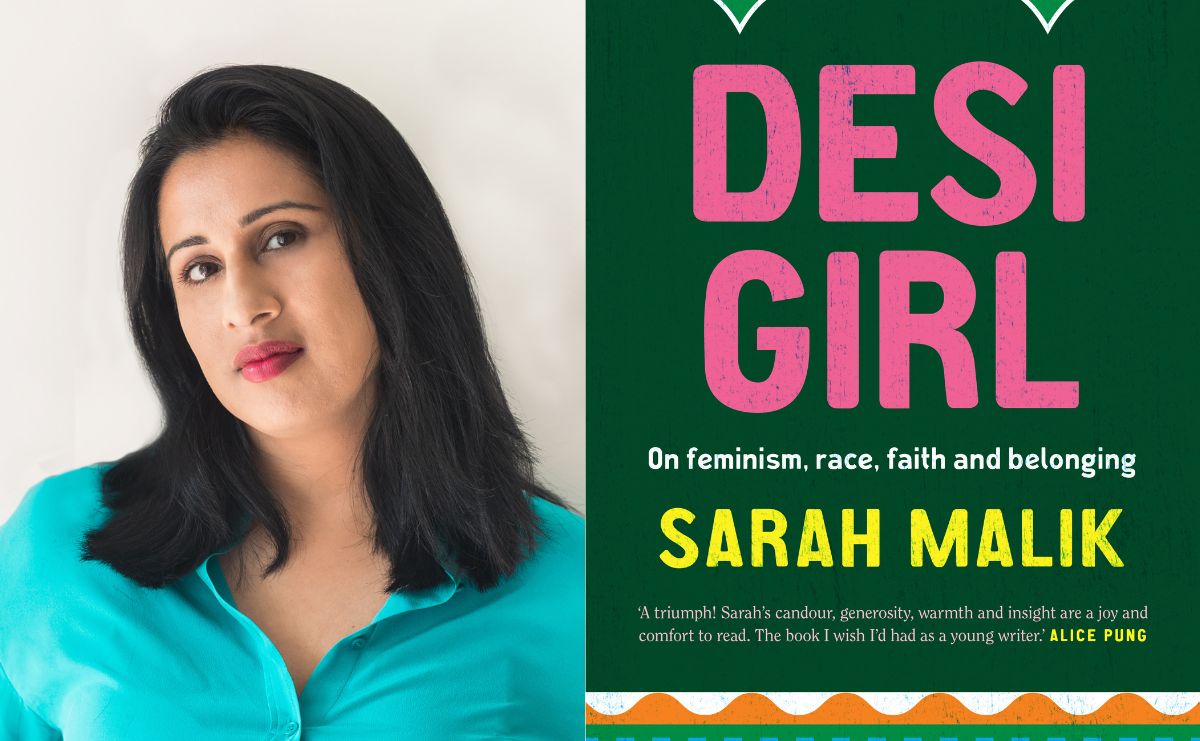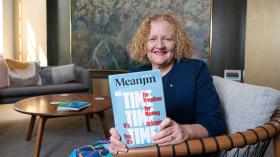Sarah Malik’s Desi Girl, as author Alice Pung so perfectly puts it on the book jacket, is ‘A triumph!’ This memoir charts notable phases in Malik’s life, with most weight given to her 20s and early 30s – a period universally experienced as a little unruly. She explores the sizeable themes of feminism, race, faith and belonging, and makes them her own while also opening up these subjects in such a way that readers may explore their own connections to them.
What Malik does land on is her understanding of herself: all that she needs, deserves, and feels proud of and passionate about, as well as her relationships with places, people and communities, and to the ideas, beliefs and histories she identifies with and inhabits.
Desi Girl’s 13 chapters feature core stories that see Malik travelling overseas to learn Arabic or stay with family, working the newsroom nightshift, moving back in with her parents, staking out a sea change and finding a ‘room of one’s own’. Readers get to grow with the author and her evolving concerns, endeavours and outlooks.
Malik is a master of storytelling, and Desi Girl has the magic of fiction. Her descriptions of places, whether familiar or not, are so richly sensory they make the places feel new – bright yellow ladoos, the slam of a wave, the aromas of bubbling korma, the feeling of arriving at your future home. But her flair for evocative detail and beautiful prose does not eclipse her writerly precision. Her voice is personal and lyrical, clear and surefooted.
Perhaps it’s her journalist experience that makes her writing so informative and generous. As a Muslim woman growing up in Australia, Malik offers a vital perspective regarding feminism, race, faith and belonging.
Malik’s stories are important for readers who deserve to see themselves on the page, to read experiences similar to their own. ‘In the dissonance between me and the books I read, in the spaces between them, there is also an opportunity. Create the mirrors you don’t have, I tell myself, even if it is just for one person – you.’ In the chapter ‘Is Jane Austen Pakistani?’, Malik says she attempted to change reality by reading against the white Western colonial canon of literature, but she was still aware of how the novels she’d read growing up had imprinted on her, and were a part of her heritage of literature.
Revisiting a work like Jane Eyre as an adult and armed with new knowledge, Malik found herself able to unpick ‘the legacy of these books in [her] life’. She could also understand why many writers of colour create for children and young adults – so that these stories can fill spaces and form part of the history of literature with which new generations grow up.
Malik’s memoir fills a space of her journeying towards articulating her reality. Desi Girl is about finding yourself, while navigating white feminism, the wellness industrial complex, racism – the list goes on. Malik casts a spotlight on access and privilege, and on the guises that racism lurks behind. Every Australian reader will hopefully feel especially close to, and implicated in, the realities of this memoir – albeit in different ways.
Read: Book review: Nothing Bad Ever Happens Here, Heather Rose
Books that either affirm experience or have readers engaging with experiences beyond their own are must-reads. This book does both! In her chapter, ‘Aren’t Psychologists for White People’, Malik, in conversation with her therapist, explains that she is not the sole product of her culture and religion. She expresses that ‘a lot of what [she] experiences is bigger [than her], but some of it is personal’.
Desi Girl deserves the highest rating. Please get your hands on a copy, read it and then recommend your friends and family do the same.
Desi Girl: On feminism, race, faith and belonging by Sarah Malik
Publisher: UQP
ISBN: 9780702265624
Format: Paperback
Pages: 248 pages
Release Date: 30 August 2022
RRP: $32.99






